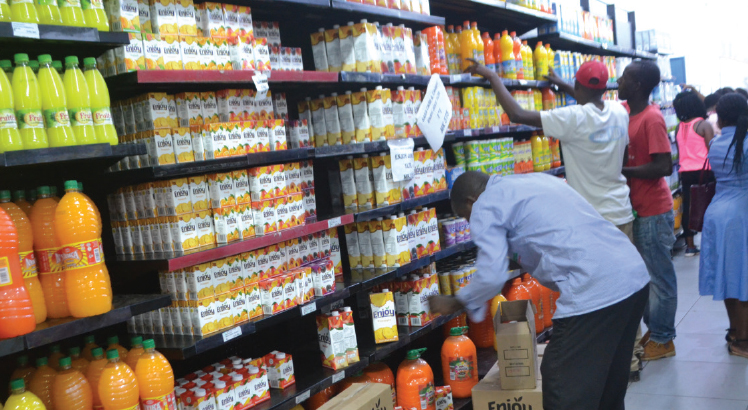Bank questions import substitution rhetoric
The World Bank says the effectiveness of promoting import substitution to address foreign exchange shortages remains questionable as government’s sentiments are not matching policy actions.
In its 15th edition of Malawi Economic Monitor, the Bretton Woods institution cited the Buy Malawi Strategy, which was officially launched in 2016 to inspire Malawians to buy more locally produced goods instead of imported products.
But the bank said this has failed to produce results.

in a retail shops
The World Bank noted that the government further proposed supporting the strategy with increased regulation such as compelling retailers to provide at least 50 percent of shelf space to domestic items.
However, the report observed that, on the contrary, international experience shows that promoting the competitiveness of exports is more effective than pursuing import substitution to increase productivity growth, especially when domestic market is such as that of Malawi.
Reads the report in part: “While it remains to be seen whether enforcement follows rhetoric, government officials have recently promised to step up the enforcement of guidelines designed to promote import substitution.
“While such perspectives are reflected in select government documents and initiatives such as the National Export Strategy II which was launched in December 2021 as well as in Malawi’s participation in the African Continental Free Trade Area, there remains some ambiguity as to how determined Malawi is to commit to an export-led growth strategy.”
The Buy Malawi strategy was launched in March 2016 to enhance competitiveness of local firms, stimulate local production, promote industrialisation and enhance import substitution.
In the short to medium-term, the strategy was expected to reduce the import bill and assist in narrowing Malawi’s trade deficit, to save foreign currency by directing it towards the procurement of more productive inputs such as equipment and machinery and vital raw materials.
However, six years down the line, the situation has not gotten any better.
Buy Malawi Strategy deputy chairperson Mike Mlombwa admitted that little has been done in the past six years to promote the initiative.
Ministry of Finance and Economic Affairs data shows that the country’s merchandise trade balance has worsened from K520 billion in 2016 to K797 billion in 2021, with imports jumping from K1.02 trillion in 2016 to about K2.06 trillion in 2021.





